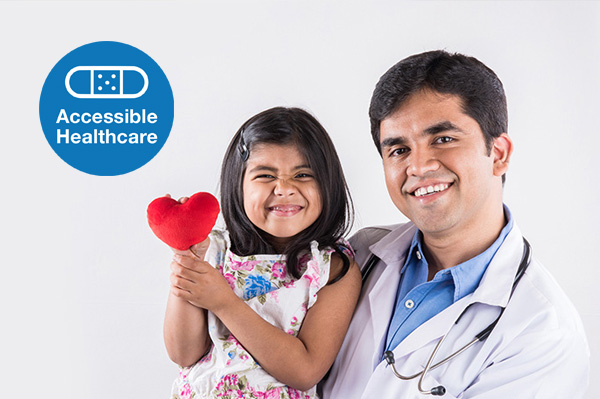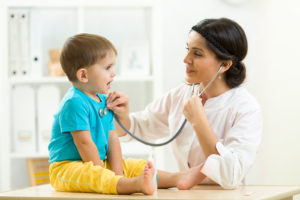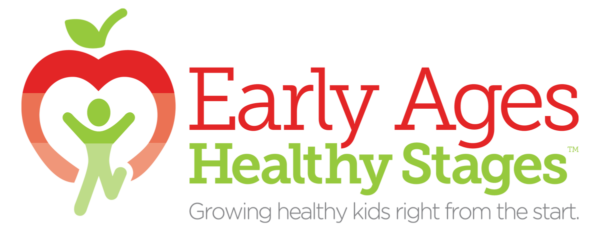Healthcare Access
Regular well-child visits with a primary care physician are vital to early childhood wellness. When young children and their families are connected to a medical home, their pediatrician becomes a source of support and information. Given the high cost of healthcare, families that live in poverty often have to choose between needs like food and shelter and ongoing healthcare. Many families choose to wait to seek medical care for their children until the child is visibly sick. Many parents of young children are lacking support from family members and social services agencies. Without these resources, it can be overwhelming to navigate the complicated medical system.

Healthcare Access | Our Goal:
Early Ages Healthy Stages will facilitate partnerships between Cuyahoga County’s world class healthcare, ECE providers and the families of young children by focusing on wellness, access, and collaboration.
Healthcare Access | Strategies for Change: EAHS is working to implement the following strategies to change the landscape of healthcare access for all young children.
The problem. Families of young children are not accessing the healthcare system for checkups and screenings. Children who live in poverty were significantly more likely not to have a medical home among white, black, and Hispanic families (Bachrach, 2011). The percentage of children with 4:3:1:3 vaccines by age 2 were 64% in Cuyahoga County and 45.2% in Cleveland; the national benchmark is 80.8% (HIP-Cuyahoga, 2013).
Parenting skills influence child’s health both by the parent’s perception of the child’s need as well as recognizing the child’s actual need for care (Serbin, 2014).
Healthy Activity | Systems Change Success Story:
The Council for Economic Opportunities of Greater Cleveland partners with the Cleveland Clinic School Health Mobile Health Care Units to provide Head Start families with access to a lead screenings and a medical home where they attend preschool.
 High blood lead levels can lead to problems with brain development, behavioral issues, and organ functioning. EAHS recognizes that there are many factors that keep families from getting lead screenings like transportation, not being connected to a medical home, and not feeling supported if their child has a positive screening.
High blood lead levels can lead to problems with brain development, behavioral issues, and organ functioning. EAHS recognizes that there are many factors that keep families from getting lead screenings like transportation, not being connected to a medical home, and not feeling supported if their child has a positive screening.
“CEOGC and Cleveland Clinic School Based Health Care met at an Early Ages Healthy Stages meeting in 2016. At the meeting, we talked about the issues regarding lead toxicity in the city of Cleveland and how we can work together to get more kids tested and educated. The Cleveland Clinic School Health has a mobile unit which would allow us to move from school to school. We thought this would be a great collaboration to reach families where they are. Right now we are in the process of signing the Memo of Understanding and scheduling dates for the mobile unit to come to William Patrick Day Center in Cleveland’s Central neighborhood and the Green Road Center in Highland Heights to do Well Child Checks and draw leads. We are planning to get started in Fall of 2017.” -Loree Rudd, Cleveland Clinic School Based Health Mobile Unit
Healthcare Access Working Group:
Co-Facilitators: Marquita Rockamore, Corporate College East and Roopa Thakur, Cleveland Clinic Foundation
